

New Zealand is somewhat a mystery to Americans with our haka and flag causing some serious confusion.
Photo/supplied
'New Zealand is hospitable'
A group of American scholars have been told they have a lot in common with Kiwis than they think.


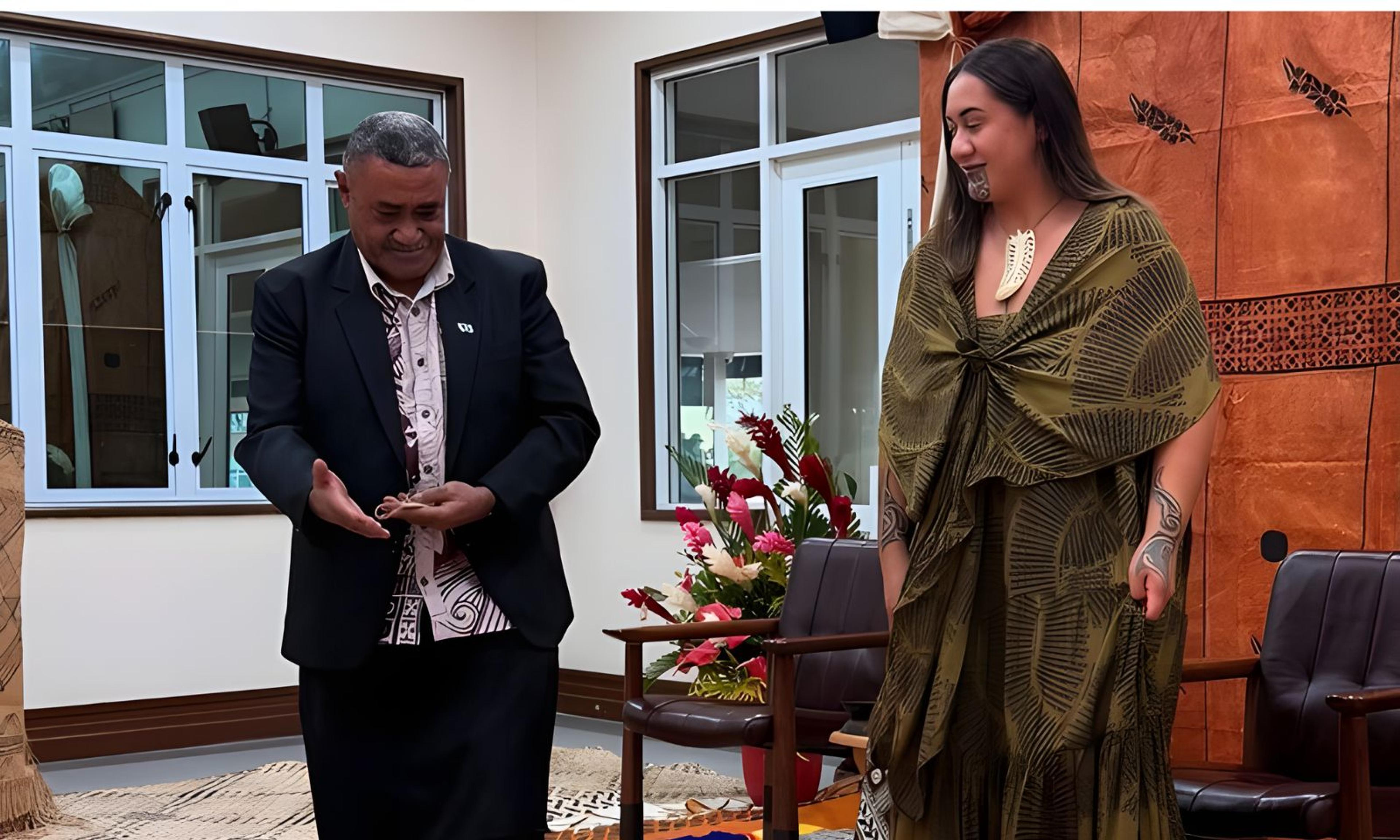
Māori Queen welcomed in Fiji to strengthen ancestral bonds ahead of chiefly installation

Pacific weightlifters excel in Palau: Turning humble beginnings into podium triumphs

Church’s $100k fine shows importance of due diligence for Pacific communities - leaders


Pacific leaders address US deportation distress and regional unity at Micronesian meeting

Māori Queen welcomed in Fiji to strengthen ancestral bonds ahead of chiefly installation

Pacific weightlifters excel in Palau: Turning humble beginnings into podium triumphs

Church’s $100k fine shows importance of due diligence for Pacific communities - leaders
New Zealand is a mystery to those in the United States, with one in four Americans thinking the haka is Japanese and our flag, well it's faring even worse, according to a survey.
For visiting scholars and experts from the US, on a professional tour, many of them can see the stark contrasts between home and here.
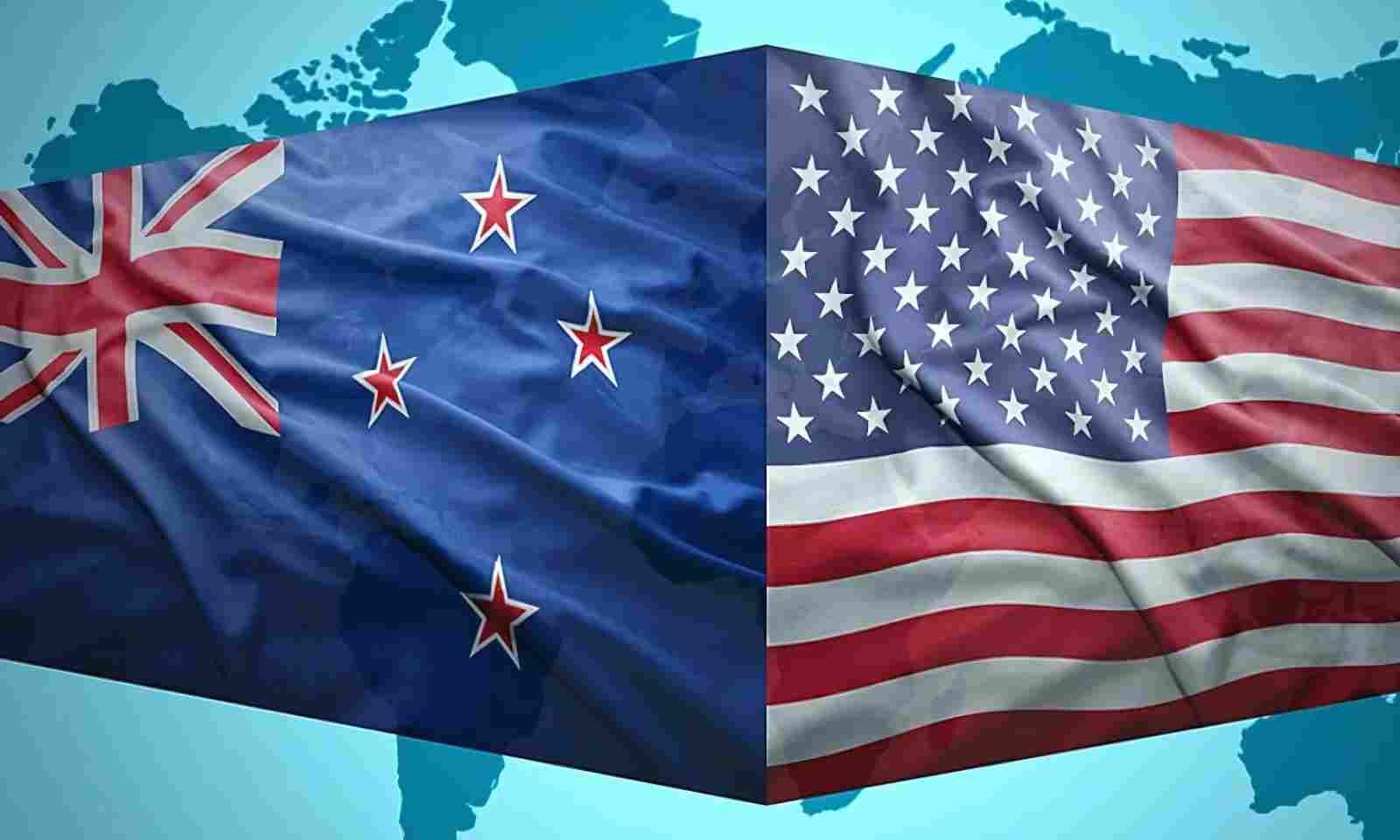
Photo/supplied
But they later learn there are many things comparable between Americans and Kiwis, international relations expert Dr Stephen Hoadley says.
Just over 16,000 Americans are living in Aotearoa, according to StatsNZ's 2018 Census.
The Road Scholar group is travelling up and down New Zealand, listening to other scholars and experts in the "specialised lectures".
"My job was to meet them and give them an introductory lecture to show that New Zealand is hospitable," Hoadley told Pacific Days' host Nemai Vucago.
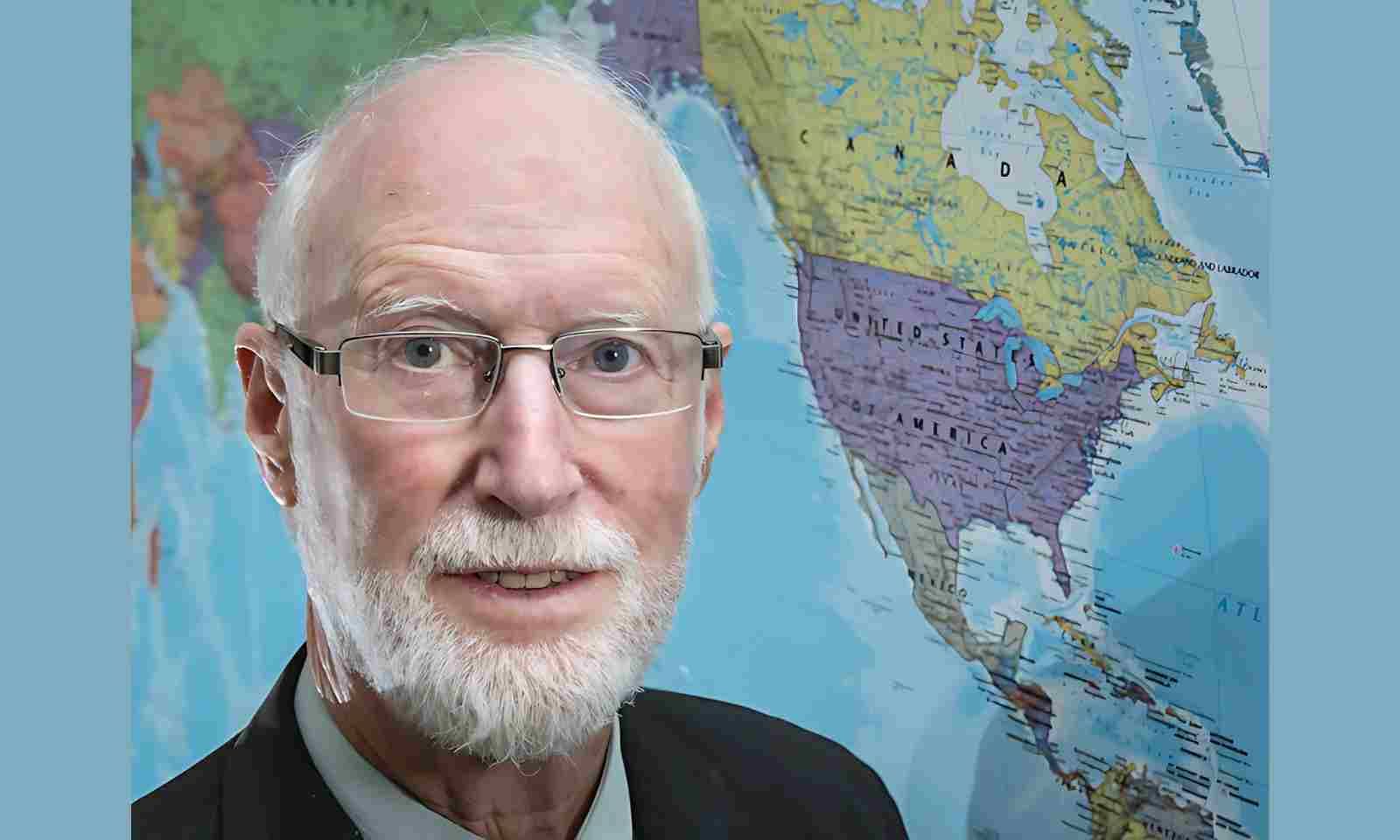
Dr Stephen Hoadley says New Zealand has many things comparable to the United States. Photo/Asia Media Centre
"New Zealand has many things comparable to the United States, but we drive on the other side of the road and we have a number of special words that New Zealanders use, which I tell them about, such as bonnet and boot and the fact that what we call football, they call a gridiron football and a number of sporting changes like that.
"What I emphasised was that the two countries are so similar in many problems that they face. Inflation, for example, crime, immigration questions, questions about conservation, about energy supply, and infrastructure."
Hoadley says Aotearoa's problems are one hundredth the size of America's problems.
That's about the ratio of the population of NZ to the population of the US, he adds.
"Therefore, they shouldn't expect grand schemes and big institutions, but scale down and enjoy the human scale of New Zealand.
"I stress also that Auckland is a very Polynesian city, that the Polynesian population is 10 per cent. Virtually every New Zealander has some Polynesian connection in their family or their business or their tourism or other ways.
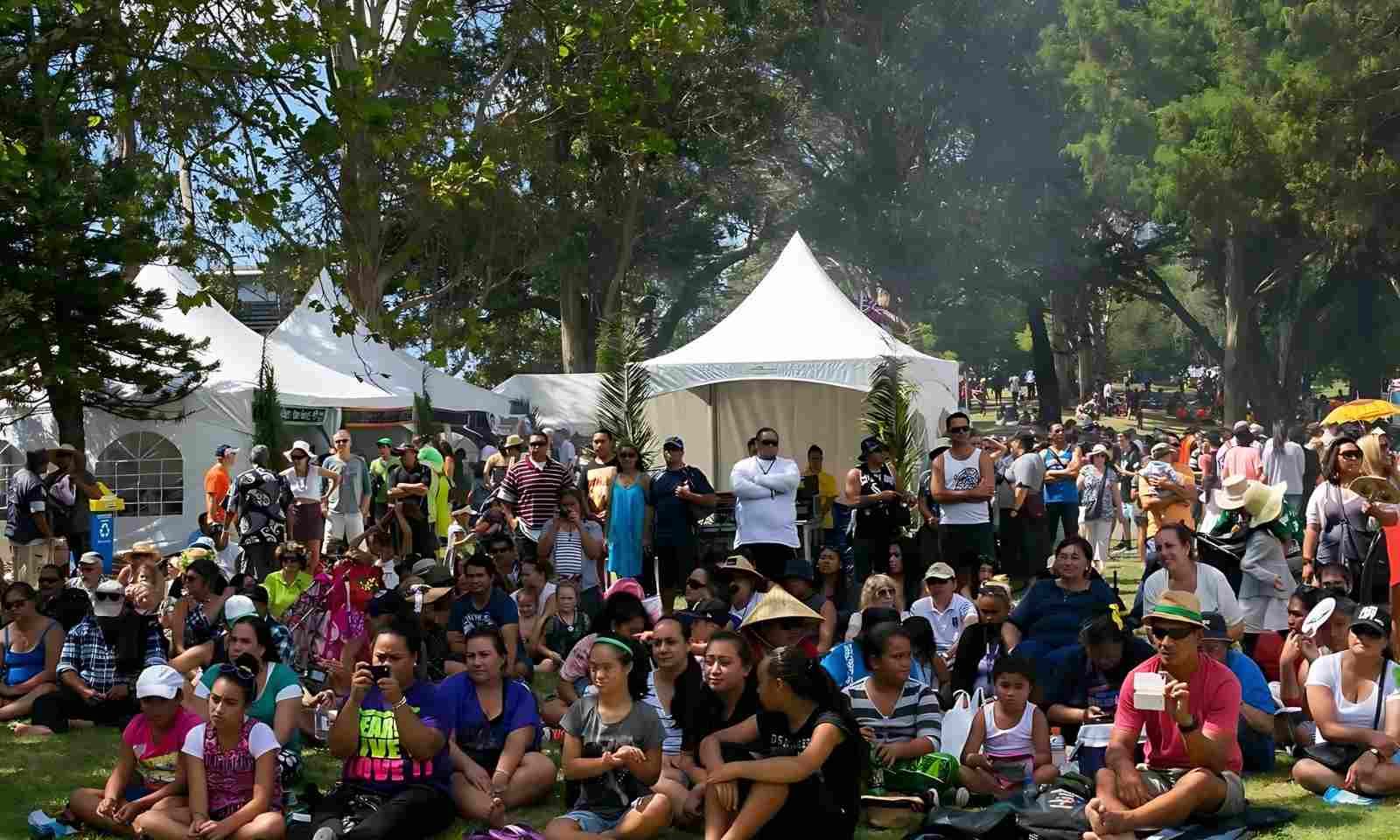
Auckland is a very Polynesian city, Dr Hoadley says. Photo/PasifikaFestival
"Therefore, they should celebrate not only the Māori culture but also the Polynesian culture in this unique city of Auckland and other parts of New Zealand as well."
A survey of American travellers published earlier this year showed that our haka and flag are causing some serious confusion.
According to Distinctive Bat, Aotearoa is somewhat of a mystery to Americans, with the haka being correctly recognised as uniquely Māori/Kiwi by about 26 per cent, while 26 per cent think it comes from Japan and 6 per cent believe it belongs to Sāmoa.
But when it comes to the New Zealand flag, it is often mistaken for the UK or Australia national banner by 49 per cent of people.
A referendum to adopt a new flag for Aotearoa resulted in the majority of Kiwis voting to retain the current one.
Hoadley says by the end of their tour, the visiting American scholars will have a "fairly good understanding of where we're coming from.
"It's not the end. It's just the beginning. We send them on to go sailing on the Waitemata Harbour, to climb Māngere Mountain, to go to the War Memorial Museum, or down to Rotorua, to the Waitomo Caves, and so on. Right down the country to enjoy all the wonderful things that New Zealand has.
Watch Dr Stephen Hoadley's full interview below.
"They are helping us by coming to help our income, our tourist income, and they're quite a well-mannered group.
"They're interested in everything we do and it's my privilege to introduce them on the first day of their formal tour."
The Road Scholar tour comes as Parliament hosts New Zealand's first Indigenous Tribal Leaders' Symposium - themed 'Sharing lessons from those who have walked the sovereignty and kotahitanga path' - this week.
The meeting is seen as an opportunity for Māori leaders to listen to their Native American counterparts in pursuing a similar journey of self-determination.
Iwi representatives say similar issues are being highlighted across the motu and they are planning action about the coalition government's policies on Te Ao Māori.
"That's a priority for me, to learn how we can give effect to the wairua, or the spirit of unity that is clearly in our community - and how we can turn that into something actionable," one official told journalists.
The symposium comes days after US President Joe Biden's historic apology to Native Americans over abuse and deaths at government-run boarding schools.
Americans go to the polls next week to elect their President for the next four years. Vice President and Democrat Kamala Harris is taking on Republican and former president Donald Trump in the 5 November election.
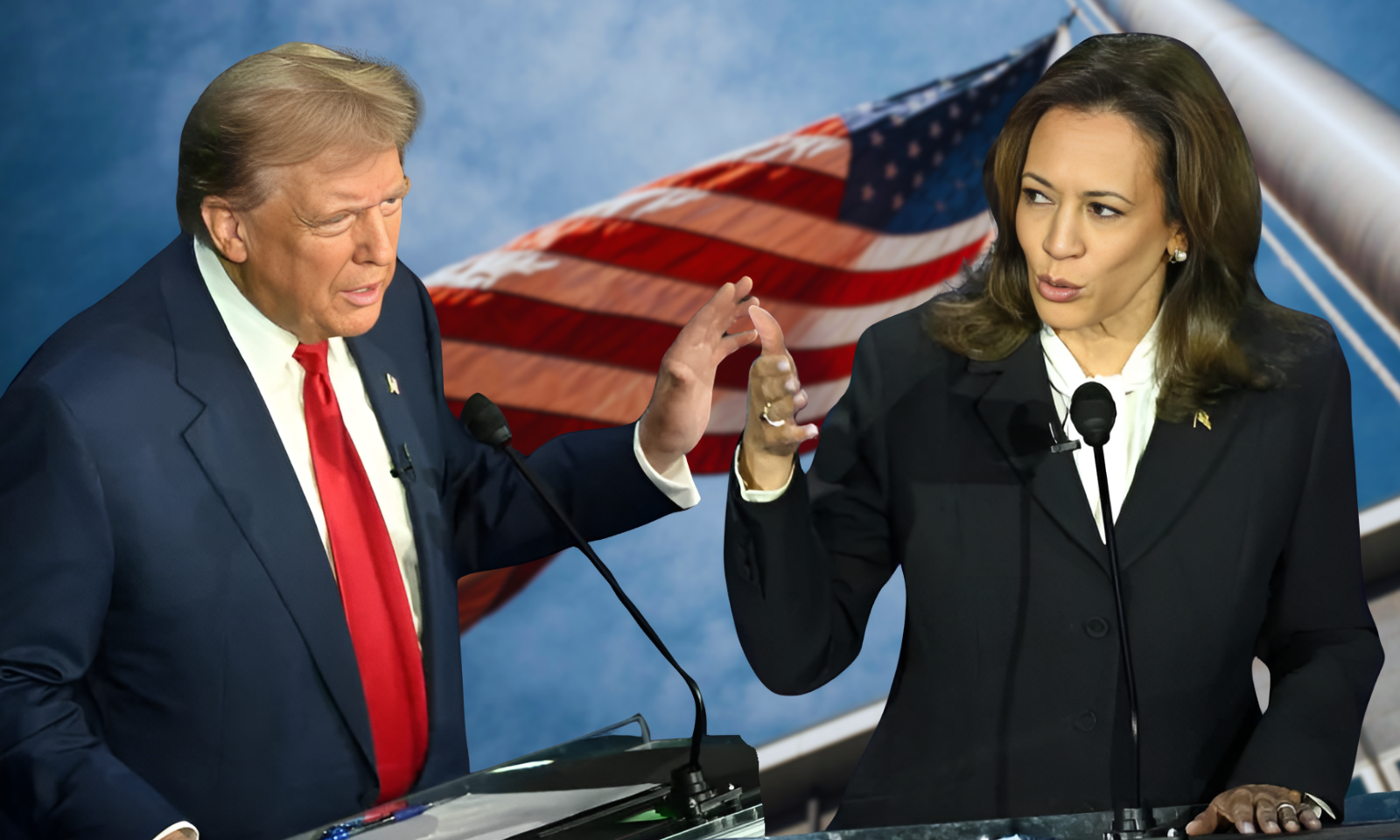
Donald Trump and Kamala Harris are vying for the Oval Office. Photo/supplied